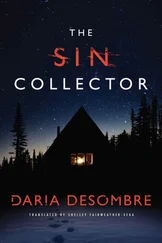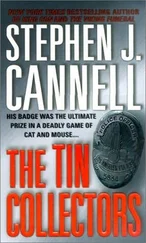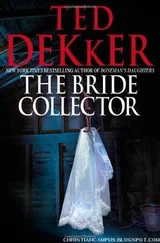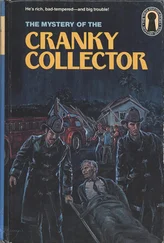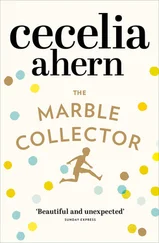When she biked to campus, a car swerved and almost hit her. For a moment she caught herself up, and pulled over to the side of the street. Breathing fast, she tried to calm down. Be more careful! she told herself. Wake up! Eat! But she was already late for Aristotle, and she had no time to shop for food. Later, she did pause briefly at the Student Union, but the produce there was coated with some kind of fruit polish. How could she eat another shiny apple? Or a hard little plum? Or those bright-hued, jet-lagged cherry tomatoes? She didn’t drink milk. She wouldn’t eat a box of Froot Loops. Briefly the plastic bins of candy tempted her. Swedish fish and gummy bears and sour gummy worms—but she knew those treats were full of boiled calf bones: gelatin.
Outside the Union at the bike racks someone called her name. “Jessamine!” a voice sang out, and she turned to see Rabbi Helfgott bearing down on her with fistfuls of brochures. Her heart jumped in surprise and dismay. He was wondering, of course, about his loan. He was about to ask, as he had every right, where his money had gone.
“Good to see you. Good to see you,” said Helfgott.
“Rabbi! I’m sorry!” she began.
“Why is that?”
“I have to pay you back.”
“I know you will,” he told her, and she thought, That makes one of us. She had planned to repay him, but a cash shortfall at Save the Trees had endangered summer operations. Seizing the opportunity, Jess had donated her shares, reserving just a few to repay the rabbi’s loan. The trouble was that she had donated the shares at $302. The very week she made the transfer, Veritech released its earnings, just a penny lower than analyst expectations, and the share price plummeted to $150. The six shares she had kept to pay back Rabbi Helfgott had sunk in value, and they would not rise again so she could sell and repay him.
Perhaps Helfgott knew this, because whenever she’d called about paying him he always assured her that he was in no rush. He never pestered, except to invite her to events at his center. A tree planting, a Torah class. She made excuses every time.
Now she stood before him, guilty, swinging her bike helmet by the straps. What kind of person was she to take a rabbi’s money and hold on to it as she had? By rights he should be charging interest. “I made a donation,” she confessed. “I donated my stock to Save the Trees.”
She was amazed at his response. He smiled. “This is a wonderful thing.”
“Really? You aren’t angry?”
“I myself am very fond of trees,” he told her. “I myself have an interest in the ecosystem. Without this system, where would we be? I have spoken many times about this in classes and also festivals. You have perhaps heard of Water Awareness Month? I gave a benediction for this month in Redwood City. We have an expression in Hebrew: Mayim Hayim. ‘Water is life.’ With water, with sunshine, with the spirit of the Creator comes life and also trees. We have another phrase. Etz Hayim. ‘The Tree of Life.’ Perhaps you have heard of it? In our tradition the Torah is the Tree of Life. It is very understandable that when you find a tree, particularly one of the majestic redwoods, you would wish to donate your money to that tree. This is your way of saying: I see the Tree of Life, and I will hold on to it.”
Jess swallowed hard, moved by the rabbi’s words. “I’m going to pay you back as soon as possible.”
“Don’t pay me. Pay the Bialystok Center of Berkeley,” he said. “Then you can write off the donation on your taxes.”
“I’ll pay you and I’ll pay you interest,” she resolved.
“No interest,” said the rabbi, spreading his hands. “No monetary interest.”
“What other kind of interest is there?”
“Ah.” The rabbi smiled at her. “I am thinking of a more substantial interest.”
“And what’s that?”
“I am interested in you.”
“Me?” Jess asked.
“You have heard the expression ‘Time is money,’” said Helfgott. “Some people prefer payment in money. I prefer payment in time.”
“What do you mean?”
“Come to us for Shabbes,” he told her. “Or come to class, and when you’re done coming, then” —he drew out the word in a singsong voice—“ thehen repay the loan.”
She was late to work. Half an hour late, forty-five minutes late. George sat at his desk at Yorick’s and called Jess’s home number, but no one answered. He began to call the Tree House and then hung up.
His old black telephone sat silent on his desk. The boxes he had stacked near European History remained unpacked. She’d quit. That was the most likely scenario. She had decided to leave but hadn’t bothered to give notice. That was usually the way with students. She had run off with her boyfriend, an amphibious creature George had met just once in passing at the Farmers’ Market, where Jess hailed George from a booth selling root vegetables.
“I want you to meet someone!” she called out in her friendly way. Then she drew Leon from the shadows, as one might draw a dark slug off a lettuce leaf. The boyfriend was a tall Russian, or Armenian perhaps, with slippery black hair and olive skin, and eyes of an unusually pale, druggy shade of blue. The better to see you with, my dear, thought George. “This is Leon,” Jess said.
“Hey,” said Leon as George extended his hand.
“This is my boss, George,” Jess told Leon.
Leon sized up George. “You’re the bookseller.”
“I am.”
“Good for you,” said Leon as though George were a child or a student or a dog performing some stupid trick. “What’s selling these days?”
George frowned. “Nothing you’d like.”
How quickly Jess had traded slacker Noah for sinister Leon. She was now over an hour late, later than she had ever been. Maybe she had not run off with Leon. Maybe she was dead.
He walked to the shop window, which Jess had set up with a display for Shakespeare’s birthday. Used paperbacks of the Histories and Comedies framed a leather-bound Complete Works, and a Tales from Shakespeare in two volumes, very fine condition, with illustrations by Arthur Rackham. She had opened one volume to display a color plate of barefoot Miranda dancing with fairies on her father’s island, but George had vetoed that idea, closing the book to save its spine and protect its colors from the sun.
No one outside even stopped to look. The fine fall weather kept people out of dark little bookstores. He told himself this, although on rainy winter days, he tended toward the other opinion, concluding that few would venture out to browse when they could stay home and order books online or reread books they already possessed. Vanity, vanity. Instantly accessible, infinitely searchable, the Internet precluded physical transactions, so that there was little point to keeping a bookshop, even in Berkeley. Moments of discovery in the store were sweet but all too rare: the reunion of a customer with the long-sought Zen and the Art of Motorcycle Maintenance , the discovery of Linus Pauling’s copy of On the Origin of Species . Why live for such occasions? He only felt lonelier afterward.
He pushed away those melancholy thoughts and looked ahead to dinner. He had invited Nick, and his friend Raj as well. He had his own dissolute companions—or by the end of the night he’d make them so. There would be no wives or girlfriends, only good food and drink, George’s favorite kind of evening. Why, then, was Jess late today? She was holding him up. He had planned to leave early so that he could pick up dessert (he didn’t bake) and begin cooking.
The bell rang, and as the shop door opened, George backed away from the window lest he seem anxious. Surprised, he recognized the woman who walked in: not Jess, but Sandra.
Читать дальше

